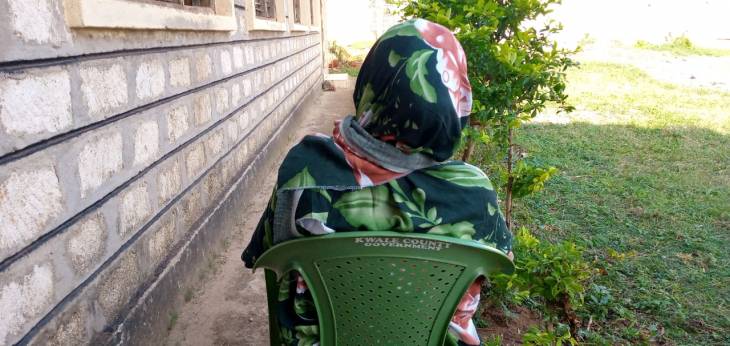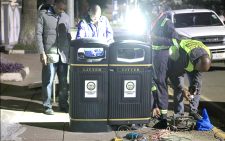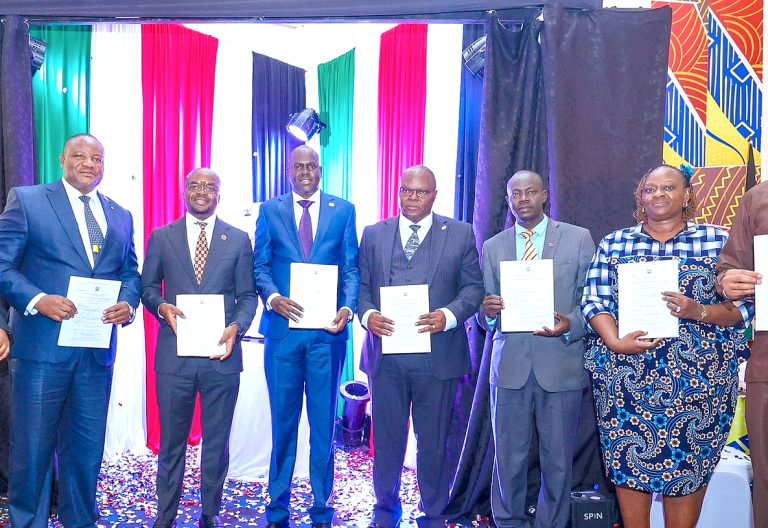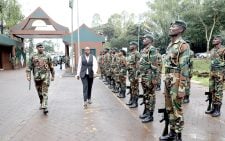Survivors of sex slavery in the Gulf share sordid stories

It all began as a lucrative idea that could transform her life after years of struggling to make ends meet.
Maurine Fauzia (not her real name) did not know that the pact she was entering into would condemn her to years of misery as a sex slave in a foreign land.
It was in 2014 and Fauzia had been working as a tailor in Mombasa with meagre earnings.
It was at her hour of need when a woman she had known for a while gave her an idea to travel to Saudi Arabia.
She told her about the good life Kenyans who migrated to the Gulf nation were enjoying. The woman painted a rosy picture of life in the Middle East for Kenyan workers and told her that her struggles and suffering would be a thing of the past if she moved.
Fauzia did not have any reason to doubt the woman. After all, she was a friend to her boss, who had been hosting her after recruiting her into the tailoring business.
Furthermore, the woman had also connected her with some friends through a social media site, who were allegedly working in Saudi Arabia and assured her that all was okay.
Fauzia, 41, is still regretting ever accepting the offer that landed her as a sex slave in the Middle East.
When People Daily caught up with her, she is still in pain and traumatised as a result of the ordeal she suffered at the hands of traffickers.
Another room
She, is, however, lucky to have made it alive. She stayed in Saudi Arabia for five moths. On the fateful, her boss had convinced her that a female friend would secure her a new tailoring job in Saudi Arabia. “They arranged for my travel and soon I was in Saudi Arabia. Initially, everything was okay and I did tailoring work,” she explains.
Things worked out well for her until after three months when she was told to quit tailoring by her new boss in Saudi Arabia.
In an interview with People Daily, the teary Fauzia said she was ordered to quit tailoring for a more lucrative venture.
Unbeknownst to her, she was being groomed for prostitution. That day when she went back home, she noticed the house manager was weirdly nice to her. She was told to freshen up and “dress to kill.”
“She told me to dress well and ushered me into another room where I was shocked to find some 20 skimpily dressed girls holed up in a corner,” she said.
She did not know what to do but her fears about being introduced into a darker trade were becoming clearer.
“I was terrified. I did not know about the room and to make matters worse, the ladies were dressed like prostitutes and there were also men in the same room,” Fauzia narrated.
She was asked to catwalk and in the process the men would bid her for money. She was still not aware of what was going on. That would be her routine for the next three days when she realised she was being auctioned to the highest bidder.
The men would forcefully have sex with her and the other girls. “It was horrific. I did not have my passport and could not even escape,” she said.
She recalls how a lady from Ethiopia, who had also been tricked to travel to Saudi Arabia, disappeared only to resurface days later and claimed she had been taken to men who repeatedly raped her.
Travel agents
“She said she was taken by about five men who repeatedly gang raped before bringing her back. I was so frightened. She advised me to run for my life should I get a chance lest I face the same fate,” she said.
The visibly shaken Fauzia said most of the victims were lured through various social media sites. She could no longer withstand the suffering and hatched a plan to flee.
She claims she hid in the boot of a car of a man who stayed in the building and fled. When the man discovered her, he threatened to take her back.
“I beseeched him to rescue and not report me. I am glad he understood my predicament,” she narrated.
When the man came back for her after four hours, he brought her passport.
“I did not even mind that I had not been paid for three months. All I wanted was to save myself from that den of prostitution,” Fauzia adds.
Another victim, Jackline Apiyo (not her real name) is also lucky to escape after she was lured to travel to Saudi Arabia.
For her, she was lured by a friend she met on Facebook who connected her to travel agents. All promises she had been given remained a mirage, as she found herself forced into prostitution.
“Many girls are suffering. Most of us who travelled for better jobs were forced into sex slavery,” she says. Their stories mirror that of other girls lured through social media sites and trafficked to Middle East where they are at the mercy of their employers.
According to a report by Equality Now, an International Human Rights Organisation in collaboration with Thompson Reuters, there has been an increase on online sexual exploitation and abuse.
“The full scale of the problem is not known because most cases go unreported due to victims blaming themselves and feeling shame,” the report.
According to Paul Adhoch, Trace Kenya Director most of the victims they received are lured on Facebook and other online platforms. Trace Kenya is an organisation working in the Coastal region to fight human trafficking he says that.
On the other side, he also says they get other victims from Western region with Bungoma taking the lead followed by Kakamega, Trans Nzoia, Meru, Tharaka Nithi, Kisii and Migori counties.
In Coast, the organisation receives most of the victims from Kilifi, Kwale and Mombasa counties.
Four cases
Adhoch told People Daily that they receive between one and four cases daily from individuals seeking help.
From the Coastal region where he works, they have recorded 253 victims who were exploited from abroad.
“Majority of the cases we received were from Saudi Arabia, Qatar and the United Emirates,” he said.
He advises those seeking greener pastures abroad to ascertain that whoever is facilitating them should assure them of their safety and well-being.
After receiving the victims, Adhoch say they take them through psychosocial support, counsel then take for medical check-up.













